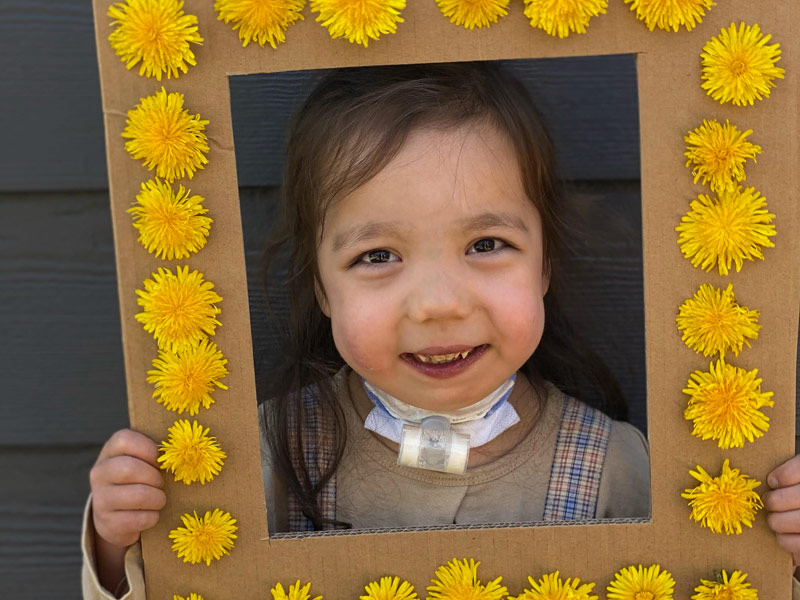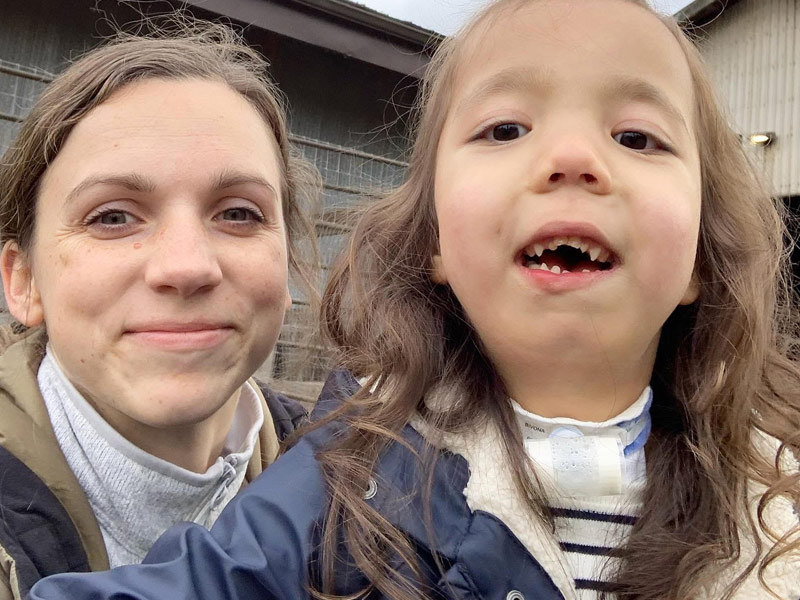My five-year-old daughter has “at least four” comorbidities that increase the risks from COVID-19. One of these is a complex congenital heart defect which required her second major open-heart surgery less than four months ago.
Her body has endured more than most adults could ever imagine. She has fought for her life more than many of us — and it is not worth less because she has conditions that make her vulnerable. In fact, her vulnerabilities allow her to experience a life even fuller than most.
Her life is beautiful, and she deserves to live it.
She deserves to live in a society that believes that.

Our family has learned more about ableism and eugenics throughout this pandemic than we should have. We have witnessed both individuals and institutions shrug as COVID more heavily affects marginalized communities. We have heard too many times to count that we just need to get back to normal, and that the vulnerable can simply stay home to allow this. We can wait our turns, sacrificing our own living and dreaming, as if it is our own faults we are at risk, or have loved ones at risk.
For me, the tipping point occurred on Jan. 7. That's when the U.S. Centers for Disease Control and Prevention director Dr. Rochelle Walensky said on Good Morning America that “the overwhelming number of deaths [of vaccinated individuals], over 75 per cent, occurred in people who had at least four comorbidities. So really these are people who were unwell to begin with and yes, really encouraging news in the context of Omicron.”
This is eugenic. Public health is treading a fine line here, not just in the U.S., but in Canada and across Europe. Not all leaders are saying it so clearly, but public health directions are subtly promoting the same thought: it is fine to allow a virus to spread through the population, largely unchecked and unchallenged, because the assumption is that it will only kill certain demographics of people.
How are we OK with allowing a virus to run rampant and infect our children, when we can see clearly that it is not in fact mild, but sending a significant number of them to the hospital or into their future with long COVID?
Had we as a collective, from the very beginning, worked to protect the most vulnerable among us, this virus would be gone. Had our goal been to protect our elderly and disabled and medically complex and low-income communities, had we carried a healthier dose of fear towards long COVID and the chronic conditions that will come out of this pandemic, we would have squashed it. Had we used the precautionary principle in recommended mask type and ventilation requirements and public restrictions right at the very beginning, that could have been it.
Had we tried to create new normals and new societal expectations, rather than insisting on getting back to a normal that wasn’t serving everyone as it was, we would have all been better for it.
Had we functioned like a community together, instead of a society apart, we might be celebrating as one today.
Instead, we are entering pandemic year three. Where families like mine are left with impossible decisions in dodging unsafe environments all around us. While trying to live — the same as everyone who doesn’t have disabilities or chronic health conditions — and care for our own children’s mental health, educational needs and social desires. Instead of public health including our needs, instead of our communities sharing the weight, instead of neighbours lifting us up to feel and be safe with the general public, we are being told to not be so fearful.
Don’t worry so much.
Try these tips to ease your anxiety.
Most will be OK.
If you have ever been a statistic, loved a person attached to so many statistics, been witness to a one-in-one-thousand or one-in-ten thousand or one-in-a-million individual, you know that “most” means shit. ![]()
Read more: Health, Rights + Justice, Coronavirus















Tyee Commenting Guidelines
Comments that violate guidelines risk being deleted, and violations may result in a temporary or permanent user ban. Maintain the spirit of good conversation to stay in the discussion.
*Please note The Tyee is not a forum for spreading misinformation about COVID-19, denying its existence or minimizing its risk to public health.
Do:
Do not: